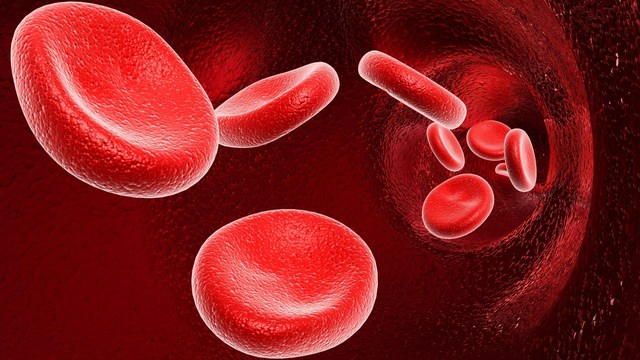Not long ago, a diagnosis of Hodgkin’s lymphoma (Hodgkin’s) was fatal. Hodgkin’s typically occurs in men who have already passed middle age, but it can occur in anyone between the ages of 15 and 40, or older individuals also. Having a family history of Hodgkin’s disease is a risk factor for developing this type of lymphoma. But advancement in diagnosis and treatment has helped make this rare lymphatic disease more treatable giving those stricken with it good chances of full recovery in cases when it is caught early.
There are several types of lymphoma, a disease of the lymphatic system. The lymph nodes, part of the immune system, usually help fight off infection, but sometimes can grow abnormally, and may spread beyond the lymphatic system, decreasing your ability to fight off infection.
Symptoms of lymphoma may vary depending on the type you have. If you experience a few of the following symptoms, it may be a good idea to get it checked out:
• Painless swelling of the lymph nodes in your neck, armpits or groin
• Persistent fatigue
• Night sweats
• Unexplained weight loss
• Coughing, trouble breathing or chest pain
• Loss of appetite
• Itching
• Increased sensitivity to the effects of alcohol or pain in your lymph nodes after drinking alcohol.
If you suspect you may have lymphoma, it is important to discuss it with your doctor to assure early detection and treatment. Some questions you may want to ask are:
- What kinds of tests do I need? Your doctor will check to determine if your lymph nodes show signs of cancerous activity. Hogkin’s typically spreads in an orderly fashion through the lymph nodes, but rarely may skip lymph nodes. Tests to help determination of Hodgkin’s include: biopsy, physical exam, X-rays, computerized tomography (CT) scan, magnetic resonance imaging (MRI), positron emission tomography (PET) scan, bone marrow aspiration and biopsy, and blood tests. Once diagnosed, the doctor will determine the stage (I-IV) of the disease, and if significant symptoms are present (characterized by a letter designation of A, B E, or S).
- What type of Hodgkin’s do I have? There are two main types of Hodgkin’s, classical (most cases) and nodular lymphocyte-predominant. Doctors are not sure what causes Hodgkin’s, but understand this type usually starts in the upper body lymph nodes—neck, collarbone, chest and under arms. Abnormal B cells (as they are called), an important part of the immune system, normally work with T cells to fight infection. When the B cells develop abnormally, these cancerous cells are known as Reed-Sternberg cells which don’t die like normal cells do in their lifecycle. The abnormal cells also attract healthy cells causing lymph nodes to enlarge.
- What type of treatments are available, and do I need immediate treatment? Urgency and basic treatment of Hodgkin’s depends on the stage of the disease, the number and regions of lymph nodes affected, and if both sides of your body need treatment. Nearly 95 percent of people with Stage I or II Hodgkin’s who are treated can expect to live five years or longer with effective treatment. As advancements in treatment and diagnosis come about, the numbers for other stages continue to improve. Typical treatment may include chemotherapy, radiation, and bone marrow or stem cell transplant.
- I have these other health conditions. How can I best manage them together? If you have other health conditions, you will need to discuss with your doctor options particular to your case.
- Are there any restrictions that I need to follow? Your doctor may want you to restrict your diet prior to an appointment. Take an active role in your treatment. It is important to remain active during treatment as much as you can. If you feel well enough to do something, do it, but set reasonable goals for yourself, take time to rest, and be sure to eat well.
- Should I see a specialist? What will that cost, and will my insurance cover seeing a specialist? Should I get a second opinion? Be your own best advocate! If you want a second opinion, ask for one. Many doctors welcome a second opinion, contrary to what you might think. Many insurance companies may cover additional testing performed by a different doctor if your doctor requests it. Some insurance companies even require a second opinion. The short delay taken in getting all the information to allow you to feel more confident and in control of your health in most cases will not be detrimental to your treatment.
- Is there any research I can do on my own and what sources would you recommend? A cancer diagnosis can be scary, frustrating, and depressing. Your doctors can suggest their favorite reputable web sites and support groups for obtaining more information and helping you cope with your lymphoma.
- Are there alternative treatments available to treat Hodgkin’s? No alternative treatments have been shown to cure Hodgkin’s. However, relaxation techniques such as biofeedback, meditation, acupuncture, massage, aromatherapy and other treatments can help ease symptoms and reduce side effects from “western medicine” treatments.
This information is not meant to be a replacement for talking with your doctor. Talk with your team of doctors to get the full picture for your particular case.
Resources:
www.mayoclinic.com Lymphoma
www.medlineplus.com Lymphoma
www.leukemia-lymphoma.org Lymphoma
Do you have a question about cancer? Check out EmpowHER’s Hodgkin's Lymphoma page. Sign-up, post a question, start or join a group, share your story, connect with other women in our community and feel EmpowHERed!
Christine Jeffries is a writer/editor for work and at heart, and lives in a home of testosterone with her husband and two sons. Christine is interested in women’s health and promoting strong women.


